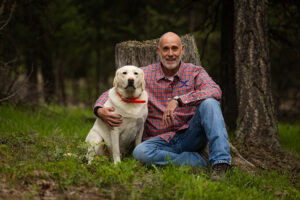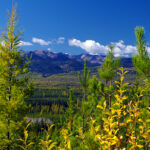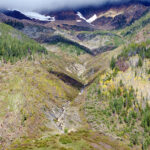Home »

Preserving wetlands—not destroying waterfowl habitat
By Mark Hall
Op-Ed Rebuttal
 Why Ducks Unlimited Canada’s plan for Bummers Flats is a step backward for biodiversity
Why Ducks Unlimited Canada’s plan for Bummers Flats is a step backward for biodiversity
For generations, Elizabeth Lake has been a cherished part of Cranbrook’s landscape—a vibrant, human-enhanced wetland supporting a wealth of biodiversity, right beside our community. The notion that draining such wetlands would somehow enhance biodiversity is not only counterintuitive, but also deeply troubling to anyone who values the ecological and cultural importance of these habitats.
While Elizabeth Lake remains untouched for now, Ducks Unlimited Canada’s recent actions at Doron Marsh (named after Dr. Mort Doron, recipient of the Order of Canada) and Bummers Flats set a dangerous precedent.
By shutting off vital water pumps and allowing these wetlands to dry out, we’ve witnessed the devastating consequences firsthand: vital wetland vegetation has died, fire risks have increased near the railway, and endangered species like the leopard frog—alongside aquatic insects, songbirds, waterfowl, shorebirds and muskrats—have vanished. The promise that this will “restore natural river-floodplain connections and improve ecosystem health” simply does not match the reality on the ground.
For decades, local hunters, conservationists, and businesses worked together to maintain these wetlands, ensuring they remained sanctuaries for waterfowl and other wildlife.
The late Joe Messer, a hunter, was just one example of a community member who understood the delicate balance between sustainable use and conservation, supporting both biodiversity and local traditions. As a member of the local Ducks Chapter, Joe maintained the pumps and weirs at Bummers Flats for decades. Now, the plan to bulldoze these wetlands—burning thousands of litres of fuel in the process—raises serious questions about both environmental stewardship and fiscal responsibility.
Scientific consensus and Ducks Unlimited Canada’s own resources have long stated that biodiversity is richer in wetlands than in adjacent upland habitats. Wetlands sequester carbon, protect against climate change, and support countless species. Yet Doron Marsh now lies barren, nesting structures for ducks are slated to be destroyed, and the vibrant ecosystem sustained by community effort over half a century is being dismantled—supposedly in the name of biodiversity enhancement.
Ducks Unlimited Canada emphasizes, on their website, that water—especially in the form of wetlands—is essential for clean drinking water, climate resilience, biodiversity, and community well-being. Their website also states that wetlands give us natural places to play, learn and explore. They are destinations for hiking, hunting, canoeing, photography and more.
When I spoke to a Ducks Unlimited Canada representative earlier in the summer about its plans to deconstruct Doron Marsh and Bummers Flats ecosystems they told me straight up that they know that the wetlands will dry out and that they might flood naturally every few decades for short periods, however, overall biodiversity will be enhanced by doing this. I was told it’s too expensive to operate the pumps even thought I offered to take Joe Messer’s place and do it for free.
Bummers Flats is an ancient post-glacial flood plain. When you walk the land out there it’s not hard to see that the Kootenay River has down cut well-below the level of Doron Marsh and it would take catastrophic floods to provide water back to the marsh. The ditches and levees were the structures that kept the marsh healthy—they were not disconnecting the marsh from the natural flood plain.
The rationale behind these actions is not supported by ecological evidence. Instead, it seems driven by financial pressures and a shift towards grant-dependent conservation models that may exclude Canadians from sustainable use and enjoyment of their lands. As Ducks Unlimited Canada aligns itself with initiatives like the 30×30 campaign and supports the creation of new national parks aimed at ending hunting, trapping, fishing and public access to Crown land, questions arise about the future of sustainable practices, hunting culture, and community involvement in conservation.
True conservation is about passion, generational benefits, and collaboration—not profit centres fuelled by government grants. The move to deconstruct Doron Marsh and Bummers Flats is not an enhancement of biodiversity; it’s a loss of habitat, culture, and sustainable opportunity to harvest a duck or two for the dinner table.
As an ecologist, hunter and a member of this community, I urge citizens to speak out before more wetlands are lost to misguided projects.
These resources belong to all of us. Contact the Honourable Randene Neill, Minister of Water, Land and Resource Stewardship, and demand a halt to the destruction of our waterfowl habitats. Let’s ensure our wetlands remain places of life, not monuments to failed conservation policy.
– Mark Hall is the Director of the Wild Origins Canada Foundation, a Cranbrook resident and a member of the International Union for Conservation of Nature’s Sustainable Use Livelihood working group.
Lead image: Ruger enjoying his ride in the Doron Marsh. Photo by Mark Hall, Wild Origins Canada







